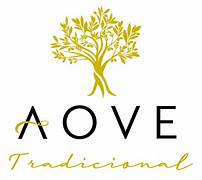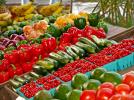
AOVE-Traditional Operational Group: Blockchain Certification of the Traceability of Extra Virgin Olive Oil from Traditional Olive Groves
- Type Operational group
- Status Filled
- Execution 2023 -2025
- Assigned Budget 479.882,5 €
- Scope Supraautonómico
- Autonomous community Andalucía; Castilla - La Mancha; Extremadura
- Main source of financing CAP 2014-2020
- Project website https://aovetradicional.es
Creation of a blockchain tool that offers consumers confidence and a quality product, produced in traditional olive groves and on farms with economic and environmental sustainability advice.
- Consumer behavior study: level of knowledge about olive oils, consumer perception of quality, and confidence in certain attributes of olive oils and extra virgin olive oils.
- Characterization of traditional olive groves.
- Creation of an adaptable blockchain tool for certifying the entire value chain, establishing certification specifications, and labeling.
- Creation of an advisory module on farm financial management and development of specific advice aimed at young people and women.
- Recommendations on climate change adaptation and mitigation, use of natural resources and inputs, and development of renewable energy.
- Consumer behavior study: level of knowledge about olive oils, consumer perception of quality, and confidence in certain attributes of olive oils and extra virgin olive oils.
- Characterization of traditional olive groves.
- Creation of an adaptable blockchain tool for certifying the entire value chain, establishing certification specifications, and labeling.
- Creation of an advisory module on farm financial management and development of specific advice aimed at young people and women.
- Recommendations on climate change adaptation and mitigation, use of natural resources and inputs, and development of renewable energy.
Result 1: Consumer behavior study. The main objective of this study was to obtain information on consumer behavior related to the topic "Traditional Olive Groves" and the blockchain certification of the traceability of extra virgin olive oil from traditional olive groves.
We sought to understand how consumers require information about Traditional Olive Oil EVOO, but most of them fail to obtain it. Current buyers of Traditional Olive Oil EVOO appreciate receiving information about it, as they are informed before choosing a product and pay attention to its origin. This information was obtained from a market study conducted by the operational group, using a random sample of 800 online surveys and several focus groups.
The work carried out by the various entities involved in this project has resulted in the complete achievement of the expected result in an attached document entitled "Consumer Behavior Study."
Outcome 2: Traditional Olive Grove Characterization Study. This study was based on an analysis of theoretical approaches and the numerous variables used in the scientific and technical literature to characterize traditional olive groves. The objective is to offer a justified definition that facilitates the certification of extra virgin olive oil from the plots/farms where these olive groves are located, in order to improve its identification and appreciation by producers, distributors, consumers, and other operators in the value chain. Based on the work carried out, the members of the task force reached a consensus on the aspects that should define the concept of a traditional olive grove, attempting to provide a comprehensive and inclusive definition. The study's conclusions are that a planting density of 180 trees per hectare or less or a plot slope of 20% or more is established as indicators of a traditional olive grove.
Outcome 3: Establishment of the specifications for the certification of EVOO in Traditional Olive Groves. This result has resulted in a PDF document, which compiles the most important aspects that the Government has considered for inclusion in the specifications. This result will provide a concrete result on the indicators that must be met for this certification in the different chapters: product category, origin, type of olive grove, economic sustainability indicators, environmental sustainability indicators, social indicators, olive processing and transformation, marketing, etc. As a source of verification for this result, the document called "Specifications" was provided.
Result 4: Creation of an adaptable blockchain tool for certifying the entire value chain. The operational group has developed a blockchain-based tool adapted to all product marketing conditions throughout the chain, allowing end consumers to certify the conditions established in the certification document.
Several components were developed:
- A mobile app that allows farmers to record the olives they harvest.
- A web application to record how that olive is processed into oil.
- A smart contract that allows these assets to be recorded on the blockchain so they can be audited.
- A landing page that allows consumers to view all the traceability information on the oil, from the moment it is harvested.
Outcome 5: Creation and development of an advisory module on farm financial management. Thematic report: Advice on financial management aspects. Individual advice for traditional olive farms can improve their profitability. A suitable tool has been created for improving sustainable management and overall farm performance, particularly based on knowledge transfer, innovation, and new opportunities offered by digitalization. The platform has been validated with the introduction of 24 modules containing agronomic management information. Given the nature of this information, some of these chapters also include environmental and/or social information. All this information has been tested through consultations with farmers in Andalusia, Castilla-La Mancha, and Extremadura.
Outcome 6: Creation and development of an advisory module on environmental and social aspects. Report on the topic of advice on environmental and social aspects. Individual advice for traditional olive farms can improve their environmental and social sustainability. It is a suitable tool for improving sustainable management and overall farm performance, especially based on knowledge transfer, innovation, and new opportunities offered by digitalization. The platform has been validated with the introduction of 22 modules containing environmental and social management information. Given the nature of this information, some of these chapters also include agronomic information. All this information has been tested through consultations with farmers in Andalusia, Castilla-La Mancha, and Extremadura.
Outcome 7: Development of targeted counseling for young people and women. Individual counseling for young people and women on traditional olive farms can improve their environmental and social sustainability. It is a suitable tool for improving sustainable management and overall farm performance, particularly through knowledge transfer, innovation, and the new opportunities offered by digitalization.
This advisory component was developed in collaboration with the Federation of Rural Women's Associations (FADEMUR) and the UPA regional organizations.
This work allowed us to fine-tune aspects of the modules related to incorporation and equality.
UPA selected 16 farmers from the Autonomous Communities with the greatest cultivation prevalence, such as Andalusia, Castilla La Mancha, and Extremadura.
These farmers have been the basis for the advisory and validation work for the tool. Direct contact has subsequently been maintained with them, and their feedback has been collected, suggesting ways to improve the platform.
Outcome 8: Verifiable labeling based on blockchain certification of EVOO. Report on real-life case studies of the adoption of Traditional Olive Grove certification. This outcome has been developed over the three project periods. In the first period, as previously reported, the first activity was carried out: the selection of case studies that were made available to the operational group to achieve the planned objectives.
In the second period within this outcome, the operational group partners carried out support work for the R4 outcome, through its validation and certification. The final period concluded the outcome with the implementation of the tool obtained in the R4 outcome and the pilot test conducted with a total of 30,000 bottles certified as Extra Virgin Olive Oil from Traditional Olive Groves.
- Coordinator/entity name: UOA
- Coordinator/entity email: upa@upa.es
- LIDL supermercado SAU
- Unión de pequeños agricultores y ganaderos (UPA)
- Wealize S.L.
- Migasa aceites S.L.U
- Universidad de





